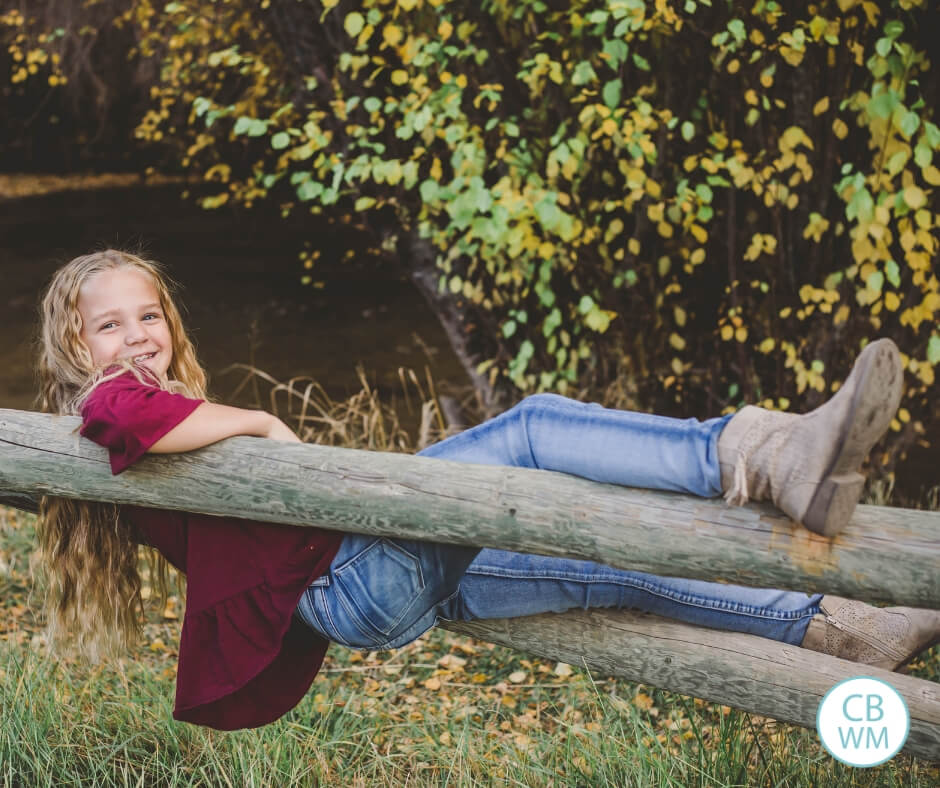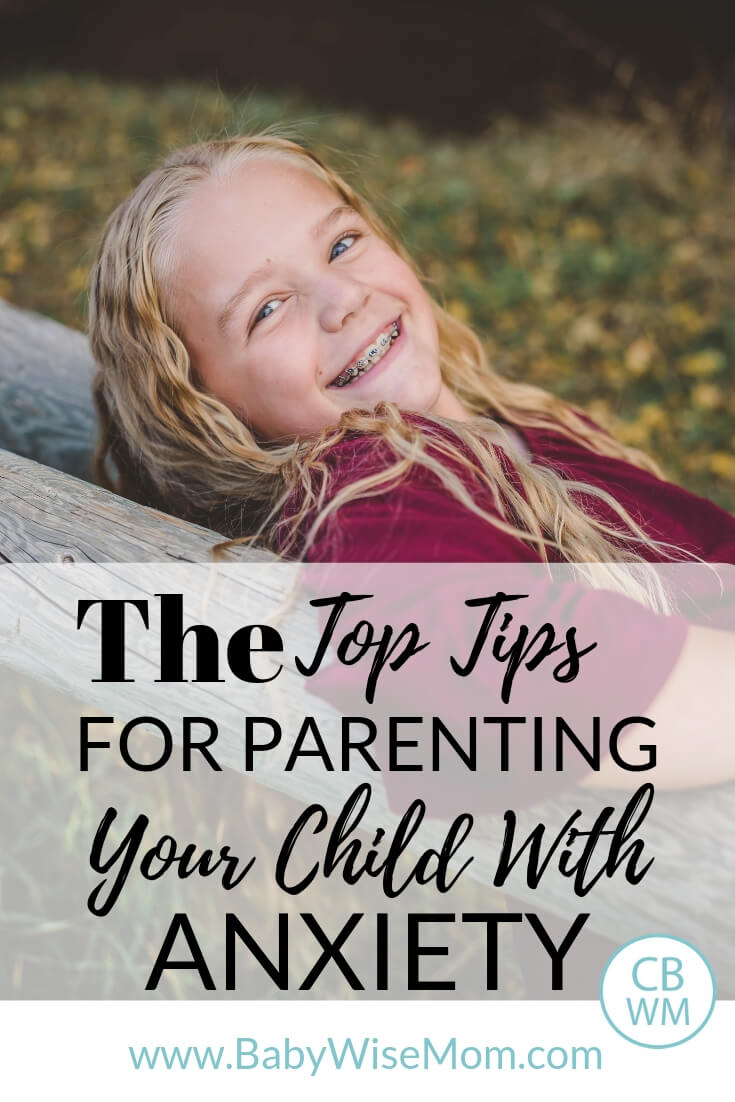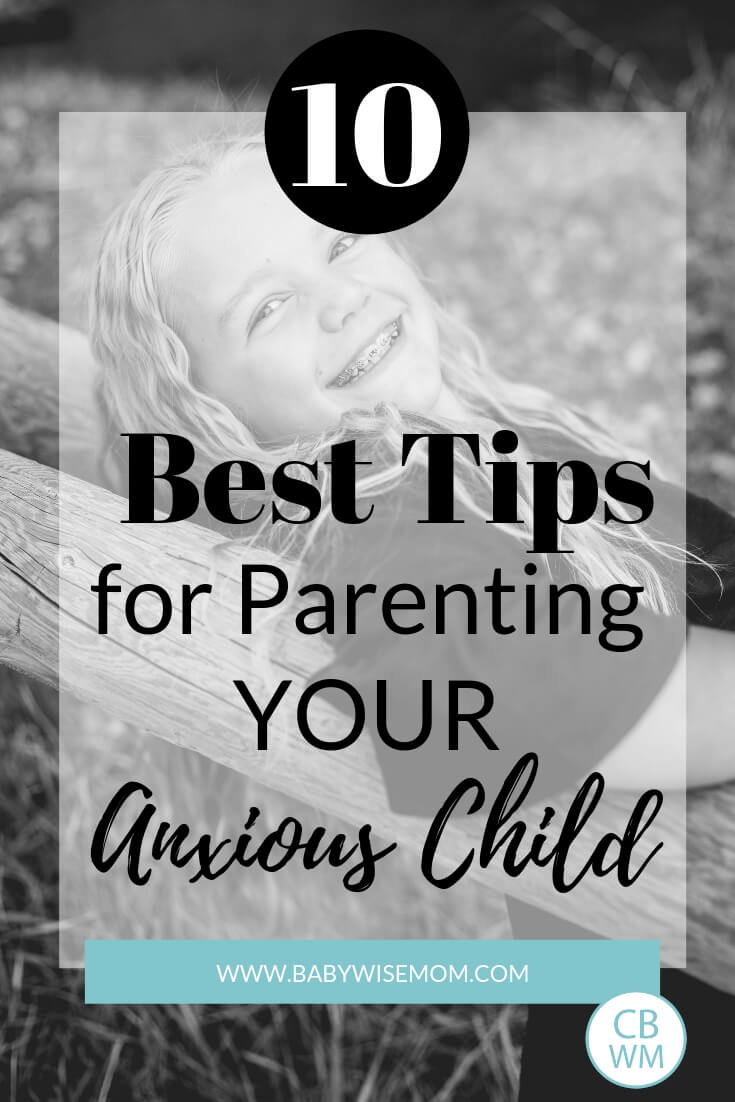Parenting an Anxious Child. How to help a child with anxiety. Anxiety in children can be difficult. Know the signs of anxiety in children and how to help anxiety in kids.

Anxiety is difficult enough for an adult to deal with individually. When you have a child with anxiety, it becomes even more difficult to navigate. Does your child have anxiety? How can you be sure? What are the signs of anxiety in children?
Post Contents
What is Anxiety
Anxiety is worry. Your child with anxiety might be nervous or stressed. Here are some common feelings associated with anxiety:
- worry
- unease
- nervousness
- apprehension
All people experience forms of anxiety. It is common to feel nervous or worried in unfamiliar situations or when performing in some way. Social anxiety is when you worry about social situations and all the things that might go wrong.
Anxiety becomes a problem when it interferes with daily life. The feelings are excessive. You can often have compulsive behavior along with the anxious feelings and even panic attacks.
Signs of Anxiety in Children
When McKenna was in first grade, almost daily she would tell me her tummy hurt in the morning. I thought she was faking sickness and trying to just stay home from school. She would tell me that missed mama and just wanted to stay home with me.
It was almost like she was having separation anxiety now that I look back on it. At the time, I thought she just didn’t want to go to school, though she is such an extrovert I couldn’t understand why.
Years later, we came to realize McKenna has some anxiety.
Children are always tricky when they have any sort of issue going on–from broken bone to hurt feelings. They do not understand what is going on and don’t always have the tools to communicate what is happening. If your child has anxiety, he or she won’t say, “Hey. I am feeling pretty anxious. Can you help me?” We need to know what to watch for so we can determine what is going on internally.
Here are some signs of anxiety in kids:
- Debilitating fear or worry
- Tummy Ache
- Lump in throat
- Dry mouth
- Wanting to stay with a parent
- Lack of eye contact
- Difficulty making friends
- Avoiding social situations
- Irrational fears
- Difficulty speaking
- Mind going blank
- Rapid heartbeat
- Sweating
- Shortness of breath
- Trouble sleeping
Your child will not need to show all of these signs to have anxiety. If your child is anxious about something, one or two of these can be a sign. McKenna started with a tummy ache. As she got older and could communicate things better, she started to share irrational fears. Those fears led to some panic attacks and trouble sleeping.
McKenna was sure she would die at any moment. Each day, she had a new ailment she was sure she had. Rabies, malaria, appendicitis, heart attack, stroke…if a character in a book she had read sometime died from it, she knew the symptoms and was sure it was plaguing her.

How To Help a Child With Anxiety
Helping children with anxiety is a tall order. If your child has anxiety, or you suspect your child has anxiety, I suggest you do not try to tackle this task alone. There are many, many resources out there to help you. Helping kids with anxiety is possible.
I would start by talking with your child’s doctor about the situation. Explain what is happening, the signs and symptoms you are seeing, and get input and feedback. Our doctor is someone we trust fully. He has known our children since their birth and has known our family for a long time.
The doctor may suggest counseling. That can be a good place to start even if you just do a couple of sessions to help give your child and possibly you coping skills. Mental health is important, and treating mental health is a lot more valued today than it was even a short time ago.
We did not go with counseling and haven’t done that at this point. We decided to try some coping skills at home first. Here are some tips. Several of these ideas are listed in the book Understanding Myself by March C. Lamia.
Manage Stress and Worry Triggers. You can’t tell someone with anxiety to just not worry and expect it to happen. You can, however, try to remove stress and triggers. Anxious children can learn skills to manage this worry and stress. For McKenna, a big trigger was reading about death. We had to limit what books she could read. No books that had death in it. This is surprisingly difficult for upper-level readers. She had to read books on a simpler reading level than she was at for a while.
Keep a Journal. A friend who had anxiety and had been through counseling herself suggested we have McKenna write things down. Write down all of her fears and then talk through them. I was always honest was we talked. When she worried she might get cancer someday, I couldn’t say, “You won’t!” because she might. I was able to logically talk through many concerns, however. The journal was a huge help to her.
Talk Through Worries and Stress. This goes along with the journal benefit, but make sure you take the time to sit and talk with your child about worries and concerns.
Exercise. Sometimes movement can help release nervous energy that is pent up. You can dance, go for a run, play a sport, etc.
Find Things That Calm. Find activities and things that calm your child. Some ideas are baths, music, meditation, scripture reading, drawing or coloring, and deep breathing.
Think Positive. It sounds super cliche, but studies have found that people who can bounce back from negative experiences use positive emotions to do so. Find ways to laugh. Think through situations with an optimistic or positive spin.
Keep a Gratitude Journal. Your brain follows the path of least resistance. Synapses are formed based on experience. If your child focuses on the negative, it will be easier to stay focused on the negative. You can re-train your brain. If you keep a gratitude journal, your brain will form new synapses and follow those paths of positivity instead.
Brayden would often have negative thoughts and worry about things going wrong. He literally would describe a cup as half empty (we tested it). I had him start keeping a gratitude journal. Every night, he wrote three things he was thankful for. He started it and found a noticable difference. That was years ago, and to this day he still writes three things he is thankful for each day. It had that strong of a positive change in his life.
Get Enough Sleep. You know I am all about sleep. Getting enough sleep helps you to regulate your emotions and mood. If you are sleep deprived, it will be harder to get control over worry and stress.
Stay Organized. Anxiety can be triggered by feeling out of control. If you can keep your space clean and organized, that can help. Have your child keep her room clean. Stay organized and in control of life, also. Help your child keep to-do lists and plan out their days and life.
Face Fears. You can’t just avoid stressful and worrisome situations and get over them. The more you do it, the more you will be able to face it. Help your child prepare. Talk through the worst that can happen. And then what. After the worst happens, then what.
Do not send your child in unprepared. If your child is worried about a race, practice for that race. If your child is worried about a test, prep for that test. Do not shield your child from life and consequences. Help your child prepare and have coping mechanisms.
Read: Test Anxiety Tips for Children
What Not To Do
Do not simply tell your child to not worry. That doesn’t work with anxious adults and it will not work with anxious kids. Things need to be talked through and addressed. Help your child develop coping skills. If you do not see improvements, absolutely go to counseling. This can be managed with the proper tools.

Childhood Anxiety Books for Parents
We had a close person to us share some very helpful books on anxiety. These are helpful for parents AND for children to read. You can even read many of these together.
Understanding Myself by March C. Lamia. This is a kid’s guide to intense emotions and strong feelings. This is for your child to read to understand herself.
My Anxious Mind: A Teen’s Guide to Managing Anxiety and Panic by Michael A. Tompkins. This is a helpful book for teens with anxiety to help understand everything going on.
What To Do When You Worry Too Much: A Kid’s Guide to Overcoming Anxiety by Dawn Huebner
Freeing Your Child from Anxiety by Tamar Chansky
Anxiety Books for Parents
Conclusion
This post has helped you learn about anxiety. Child anxiety can be hard to spot at first. If your child shows some signs of anxiety, talk to your child’s doctor and learn coping mechanisms. Over time, your child can overcome many of the anxiety issues he or she faces. Learning coping skills while young is so beneficial!




